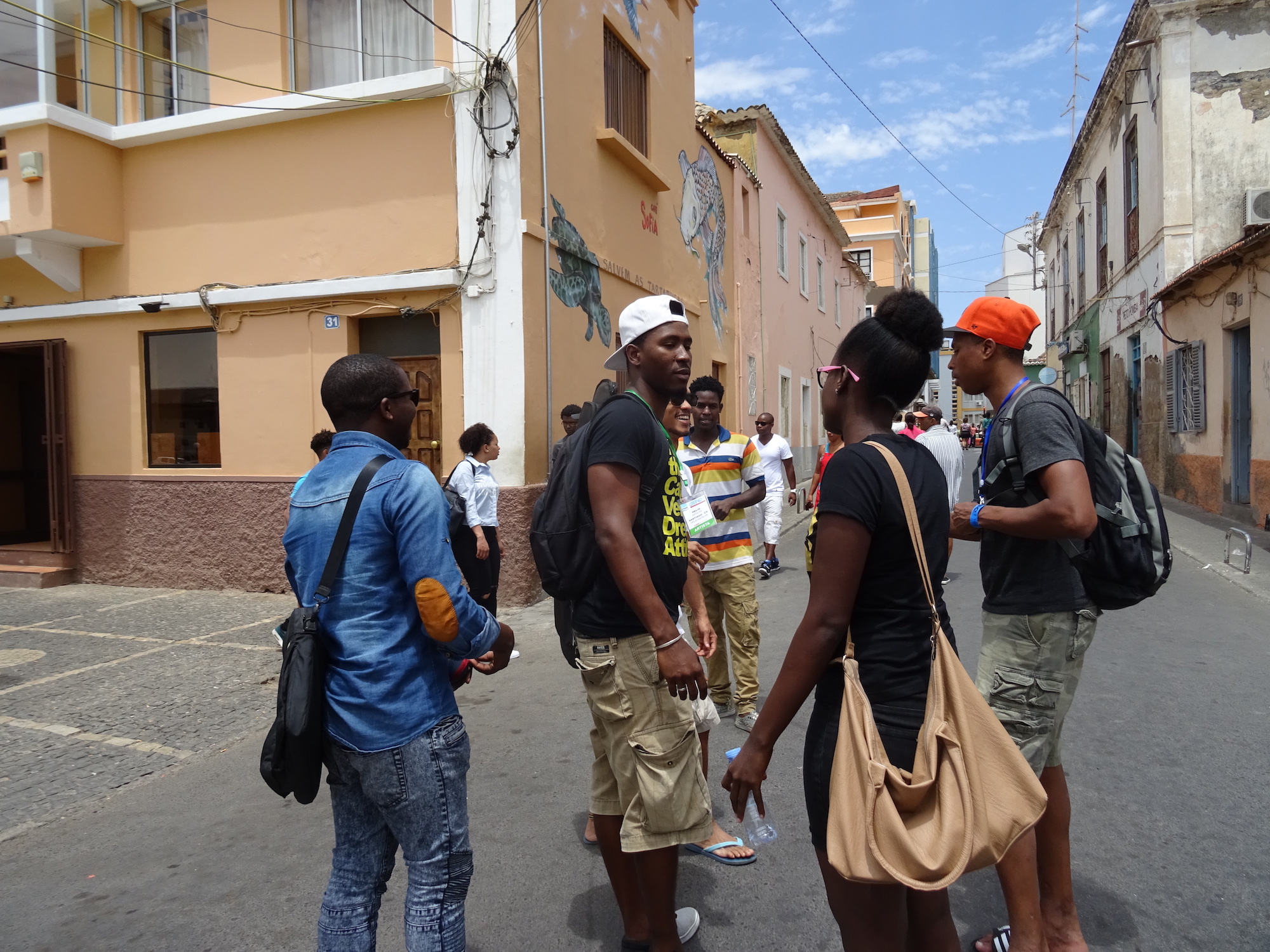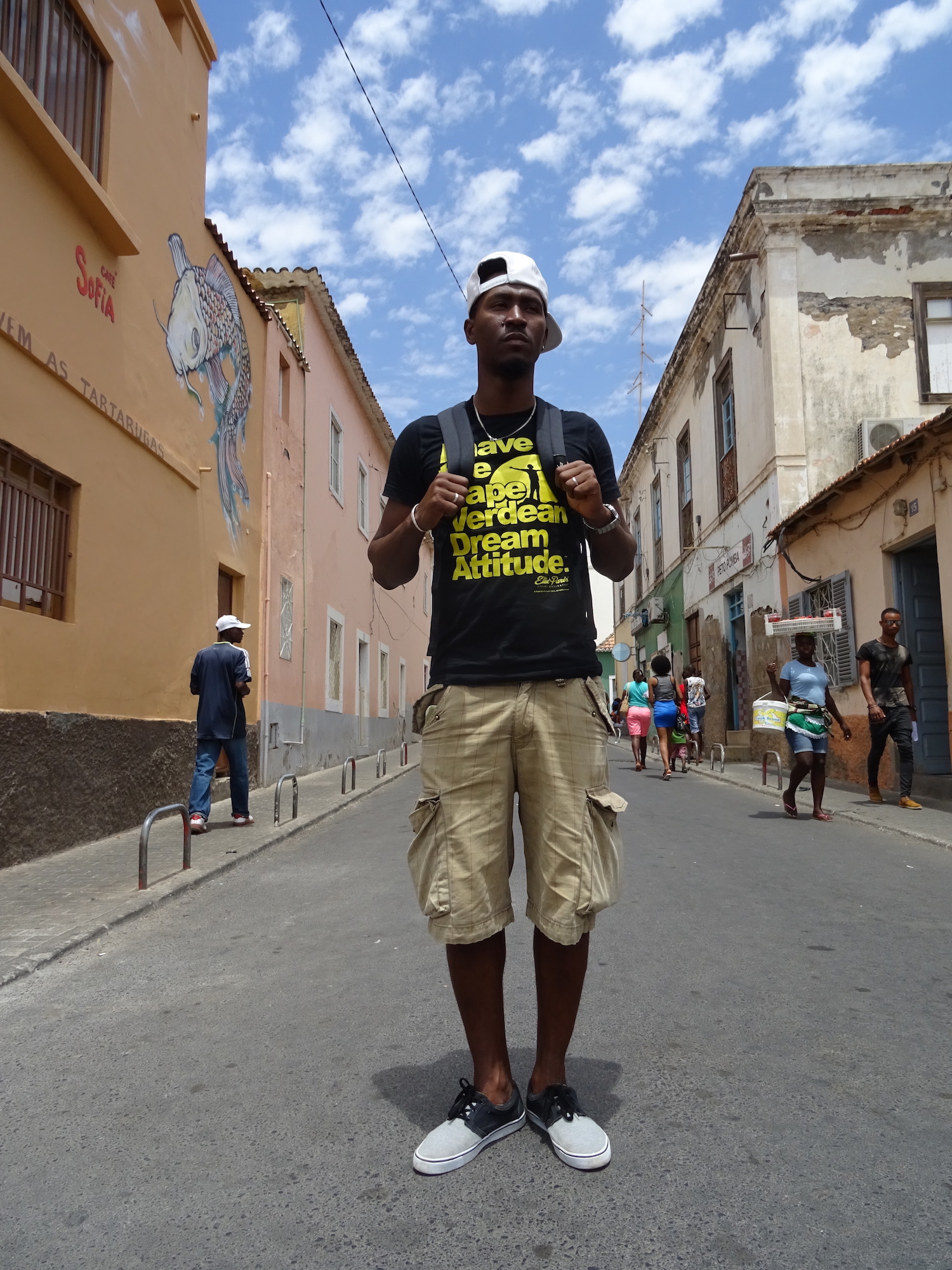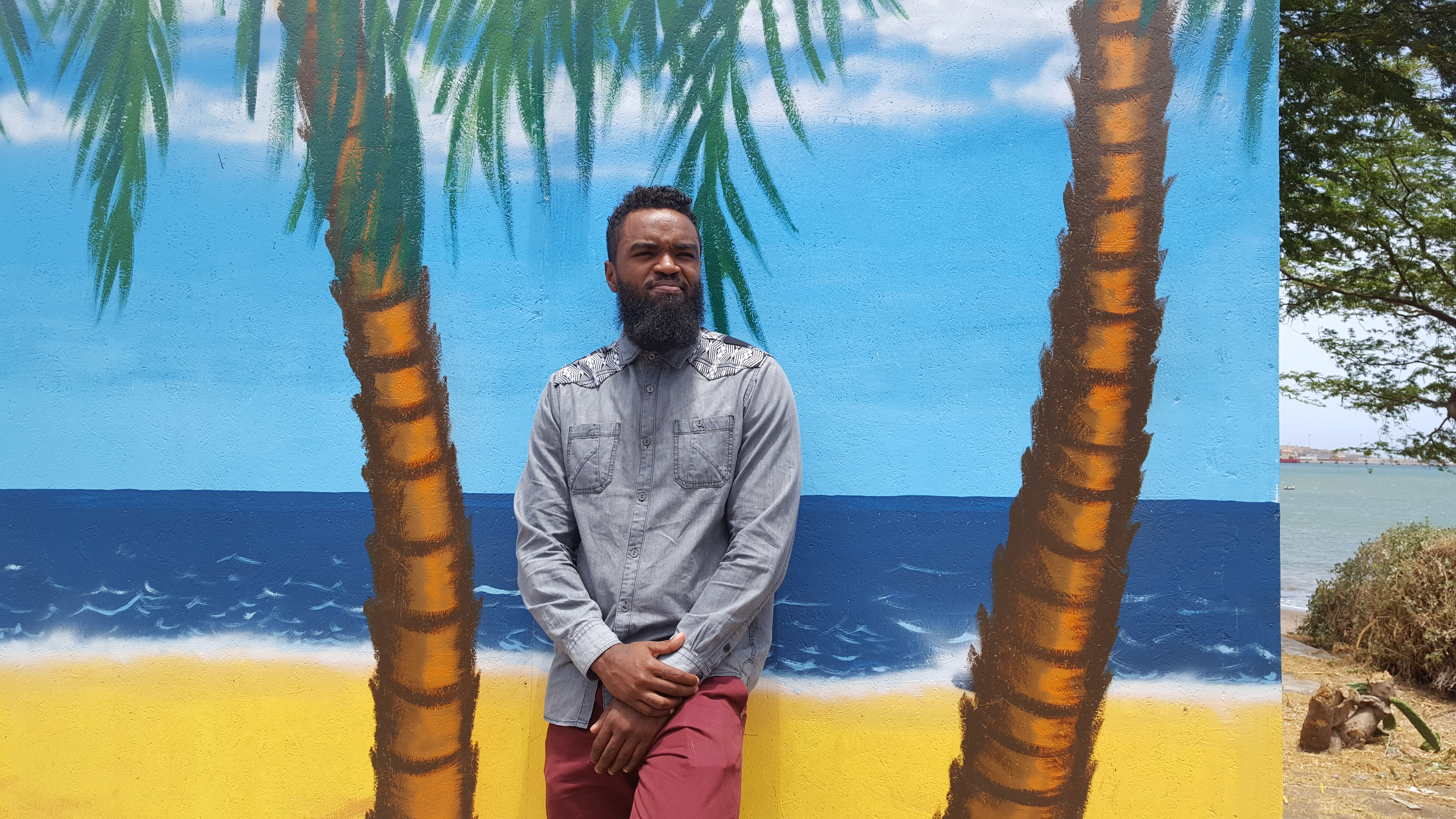When Hélio Batalha walks around Praia, as many fellow musicians stop him as shy girls eager for a selfie.
He’s getting ready for his performance at Cape Verde’s Atlantic Music Festival (AME), a set of showcases for talent on the island and from around the world. The Pracinha Escola grande, a square in centre of town, is busy with people who’ve already gathered to watch him during his soundcheck.
Later that night, it is completely packed and right in front of the stage, a space is cleared for a crowd of small children who dance, and shout out his lyrics in Kriol. They look excited and happy. He doesn’t rap about hoes and drugs. He raps about young people and the power they have to change things.
This isn’t a subculture which spits and rages against the status quo. They are more practical than that.
Hélio Batalha is part of a new generation of conscious rappers in Cape Verde – young men in their twenties who see themselves as activists as much as they see themselves as artists. They talk of empowering those who don’t have a voice and of telling the stories of those who have till now been ignored. The uniquely beautiful set of islands was once a stop-off for slaves being transported across the sea. Then Cape Verde’s independence from Portugual was hard-won in the 70s by freedom fighters like Amílcar Cabral. He is still a point of reference for these young musicians; he was only in his early thirties when he founded the party for the independence of Guinea and Cape Verde.
Things are again now changing quickly in the country. And rappers like Hélio Batalha, Batchart and PNC from Rapaz 100 Juiz are letting people know, through verses and bars, that they can have ownership of that change.
This isn’t a subculture which spits and rages against the status quo. These rappers are more practical than that. And in some ways perhaps they know they have it good; Cape Verde is one of the most stable democracies in Africa, and is known for its freedom of the press, economic growth and lack of corruption.
We talked to these young rappers about their music, their heritage and what the growing hip-hop scene in Cape Verde is like.
Hélio Batalha
Introduce yourself.
My name is Hélio Batalha and I’m an MC and student. I make rap and hip hop.
I think you can bring about more change with feelings rather than politics.
What do you make music about?
I rap about the true questions of society and the current things that are going on right now in our society. And love and freedom.
What’s the rap and hip-hop scene like here?
The hip-hop movement is very young in Cape Verde. It’s a big responsibility for the MCs like me to share the culture and make it a bigger movement.
Who are your key influences?
This guy, Azagaia from Mozambique, some artists from Portugal and Mayra Andrade who is from Cape Verde. African leaders like Thomas Sankara and Amílcar Cabral also have a big impact on the music I make.
My last two mixtapes had a lot more political views. I’m now talking from the approach of feelings like love and freedom. I think you can bring about more change with feelings rather than politics.
Check out more from Hélio Batalha
Batchart
Tell us about yourself
I’m a rapper and activist in Cape Verde. I want to let young people in Cape Verde know they can have a stake in power.
What’s the hip-hop scene like in Cape Verde?
The scene is new but it’s growing and in a few years it’s going to be big. It’s hip hop which represents the sound of this country.
For a long time, we tried to fight the system but now we want to work with people in the system, against the system.
What are your lyrics about?
I write about the power of young people. I don’t rap about women, cars and things like that.
How do you want to change things?
For a long time, we were under a system which oppressed us. For a long time, we tried to fight the system but now we want to work with people in the system, against the system. If activists work with people, we can then confront oppression.
The system means all of us. Basically it’s the political system. But it’s us who decides who represents us; without the people, you have no power.
Is your heritage still important?
Unfortunately in Cape Verde we still have a colonial society. Colonialisation stops the Cape Verdean from identifying with the African man. We don’t feel like Africans. We don’t dress like Africans because colonial masters did a very good job. The African culture isn’t really found in Cape Verde. We may have great music but we don’t have traditional African instruments like the djembe and the kora.
If you don’t know your past, there’s no way you’ll know your future.
It’s a question of identity. Who are the Cape Verdeans? That’s what I try and address in my lyrics; if you don’t know your past, there’s no way you’ll know your future. We have to know the colonial past to know what is really going on now in Cape Verde. We have to get our culture back to find a new vision.
We have to give our children African names.
Which Cape Verdean music do you listen to?
Hélio Batalha – he’s a conscious artist with a powerful message. Buddha is really good too.
Listen to any women?
Unfortunately, no. We have some but I don’t identify with them because it’s like they’re doing a job. It’s just commercial entertainment.
Check out more from Batchart
Pericles from Rapaz 100 Juiz
Introduce yourself
My stage name is PNC, I’m from Rapaz 100 Juiz. I’m a rapper in Cape Verde.
What are your lyrics about?
My lyrics are all about Cape Verde. I’m all about being the voice of the voiceless. I make music for the people, for the people who don’t have a voice. We have a lot of poor people in the city who can’t speak for themselves. On the streets they hear it.
I want to tell the poor to ‘Alô! Alô! – Wake up! We got to get together and rise up together.’
When did you start making music?
Ten years ago. At the beginning we just did music in the ghetto and for our friends. This year we’re going to celebrate with a big party and a show.
What do you rap about?
I rap about Cape Verde. There are two types of people in Cape Verde – the rich people and the poor. I want to tell the poor to ‘Alô! Alô! – Wake up! We got to get together and rise up together.’ Another song on my album is a letter to Amílcar Cabral to tell him how Cape Verde is doing right now.
How’s the Cape Verdean hip-hop and rap scene grown? What’s it like now?
Right now it’s good. There are a lot of rappers making good music. Last year at the CVMA (the Grammys of Cape Verdean music), my album won best album, instead of Kizumba and more traditional music. So hip hop is all good right now. It’s strong.
What do you want to achieve with your music?
Right now we want to take our music to Africa and work with the rappers all over Africa. In Europe we have a crew but it’s just Cape Verdeans in Europe. It’s important because I am an African and hip hop is black culture and black culture should come back to Africa.
What other Cape Verdean artists should we be listen to?
Well my friend Batchart. And in the past, Jay Jay. But he’s not doing music any more.
Check out more from Rapaz 100 Juiz









